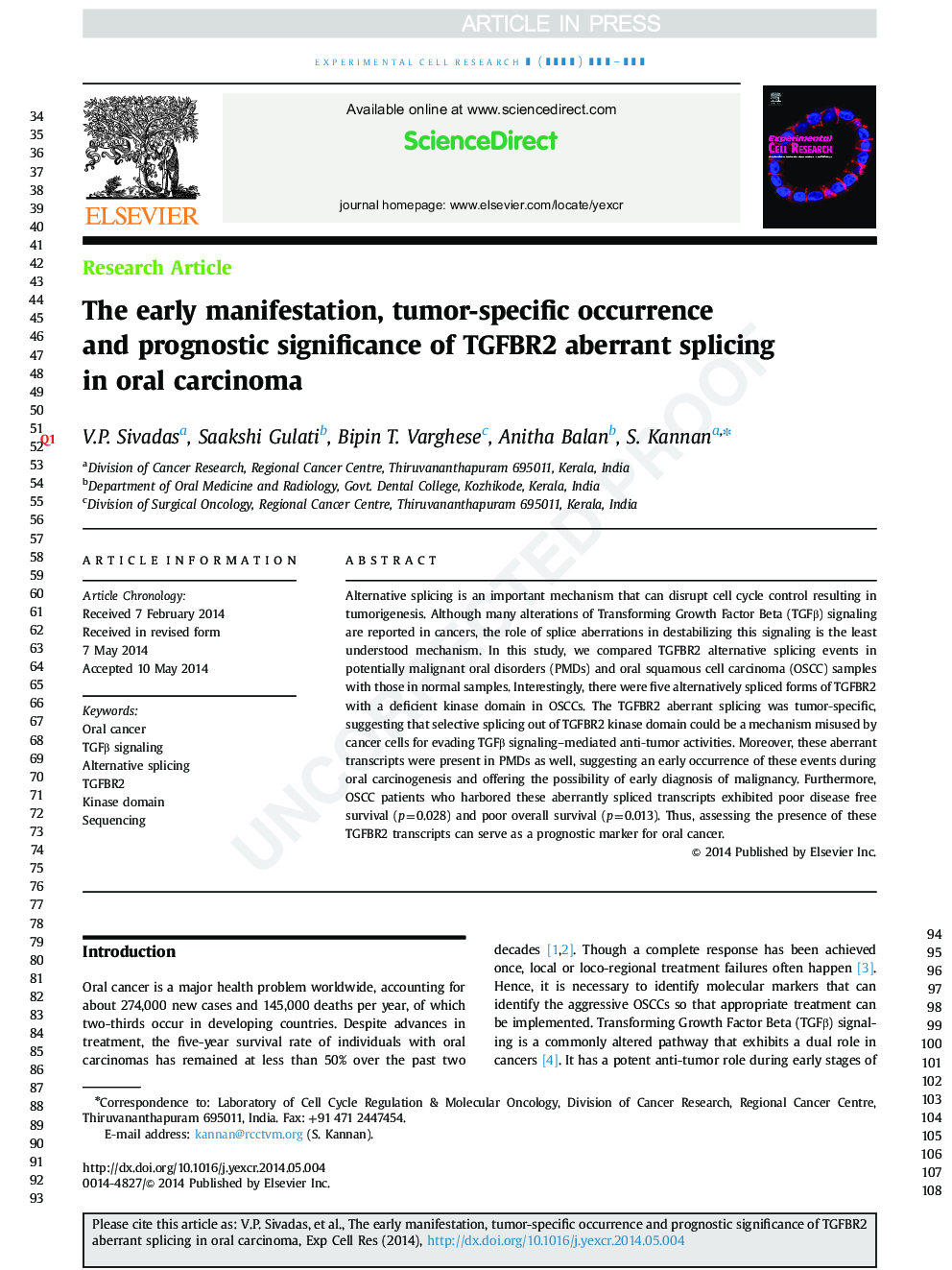| Article ID | Journal | Published Year | Pages | File Type |
|---|---|---|---|---|
| 10904098 | Experimental Cell Research | 2014 | 7 Pages |
Abstract
Alternative splicing is an important mechanism that can disrupt cell cycle control resulting in tumorigenesis. Although many alterations of Transforming Growth Factor Beta (TGFβ) signaling are reported in cancers, the role of splice aberrations in destabilizing this signaling is the least understood mechanism. In this study, we compared TGFBR2 alternative splicing events in potentially malignant oral disorders (PMDs) and oral squamous cell carcinoma (OSCC) samples with those in normal samples. Interestingly, there were five alternatively spliced forms of TGFBR2 with a deficient kinase domain in OSCCs. The TGFBR2 aberrant splicing was tumor-specific, suggesting that selective splicing out of TGFBR2 kinase domain could be a mechanism misused by cancer cells for evading TGFβ signaling-mediated anti-tumor activities. Moreover, these aberrant transcripts were present in PMDs as well, suggesting an early occurrence of these events during oral carcinogenesis and offering the possibility of early diagnosis of malignancy. Furthermore, OSCC patients who harbored these aberrantly spliced transcripts exhibited poor disease free survival (p=0.028) and poor overall survival (p=0.013). Thus, assessing the presence of these TGFBR2 transcripts can serve as a prognostic marker for oral cancer.
Related Topics
Life Sciences
Biochemistry, Genetics and Molecular Biology
Cancer Research
Authors
V.P. Sivadas, Saakshi Gulati, Bipin T. Varghese, Anita Balan, S. Kannan,
